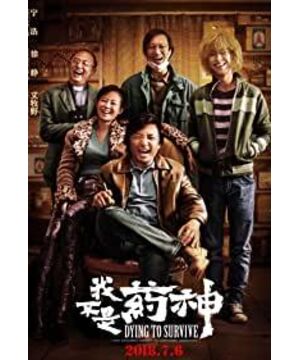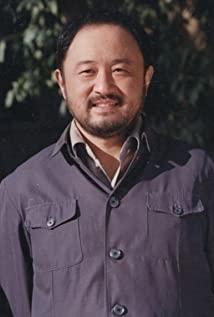Before the lights in the projection hall came on, I quickly wiped away my tears. The last movie that made me cry was Goodbye Firefly. He walked to the bathroom with his head down, wanting to wash his face, but two boys were already standing in front of the sink. Their eyes were red, and they should all be in tears. This "I'm Not the God of Medicine" probably stimulated the lacrimal glands of many people.
The movie itself is not new. The 2013 Oscar hit "Dallas Buyers Club" told a similar story of "cross-border drug buying". The character arrangements are also quite similar: the protagonist who is down and out, the steadfast helper, the enforcer who sympathizes with the weak, the enforcer who maintains the law... Under the alternate test of morality, money, and the law, the protagonists of the two films show complex human nature , and the courage to challenge authority. Therefore, many movie reviews put the two movies together for horizontal comparison. The narrative style of the film is also not natural enough. Some funny plots in the first half seem to be dispensable. The provocative paragraphs in the second half are somewhat deliberate. Even basic photography skills can pick out some flaws. The car chase scene in the container warehouse was so badly lit that it made me feel like I was watching a domestic TV series.
What makes the film special is its setting for contemporary life.
Cheng Yong, played by Xu Zheng, is a middle-aged uncle who lives at the bottom of the city and is also experiencing the "middle-aged anxiety" that is often promoted by the media. When he first appeared, he looked unkempt. As the film unfolds, we know that this down-and-out middle-aged man is facing a crisis. His marriage has broken down and he has to support the children by himself. His small business can neither be on the table nor make money. Cheng Yong is so skilled when giving gifts to people with cigarettes. But in addition to the external environment, Cheng Yong himself is also useless. He is so irritable that he often hits people. But he was cowardly when confronted by doctors and police. Whether it is taking care of himself or taking care of business, he is very lazy. We can't help but lament that this man's soul is dead. But which audience dares to say that they are never discouraged about life.
Cheng Yong can only cheer up when he takes care of his father and son. In "I'm Not the God of Medicine", Xu Zheng's basic motivation for "buying medicine across the border" was to make money to perform surgery on his father. In contrast, in "Dallas Buyers Club", the main motivation for the protagonist to "buy medicine across borders" is to survive his own life. In modern Western ethics, the individual's right to life comes first, which is enough to impress the audience. The unconditional contribution to relatives and family is in line with traditional Chinese values, and can further strengthen the appeal of the film. In the follow-up episodes of "I'm Not the God of Medicine", family affection plays a pivotal role. When giving up selling medicine, the protagonist complained that "I have old people and young people". What the protagonist remembers after being arrested is to tell his son that "Dad is not a bad person". By catering to traditional Chinese ethics, films are more likely to resonate with audiences.
With the common life experience and value ethics, the film can mobilize the heart of compassion even more.
The so-called compassion is sympathy. Seeing others get hurt, I imagine myself getting hurt and therefore feel pain for others. When I see other people in trouble, I imagine myself going through the same troubles, so I feel bad for others. What moved me the most in the movie was the part where the old lady caught the police and pleaded for mercy. In addition to describing her situation after her illness, she also asked the police to think from the patient's point of view, "No one has a patient yet." This bridge does not play a prominent role in promoting the plot, but it actually shouts to the audience across the screen, trying to arouse the audience's emotions. After listening to this sentence, the police released the patient. In fact, this also conformed to the common attitude of the audience in front of the screen. Compassion drives most people to the same set of common-sense rules. Cheng Yong's behavior is innocent in the eyes of this common sense rule.
The audience who walked out of the auditorium were shrouded in silence. I don't have the excitement of seeing a good film, nor is there too much discussion about the plot. Shared silence is a deeper recognition.
View more about Dying to Survive reviews











